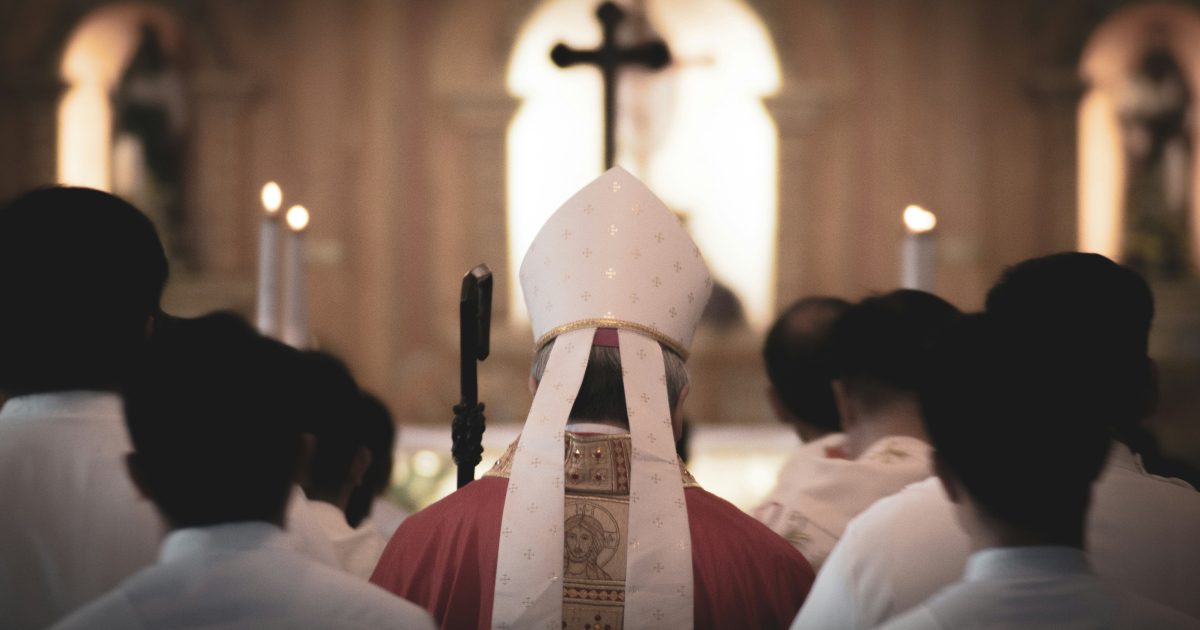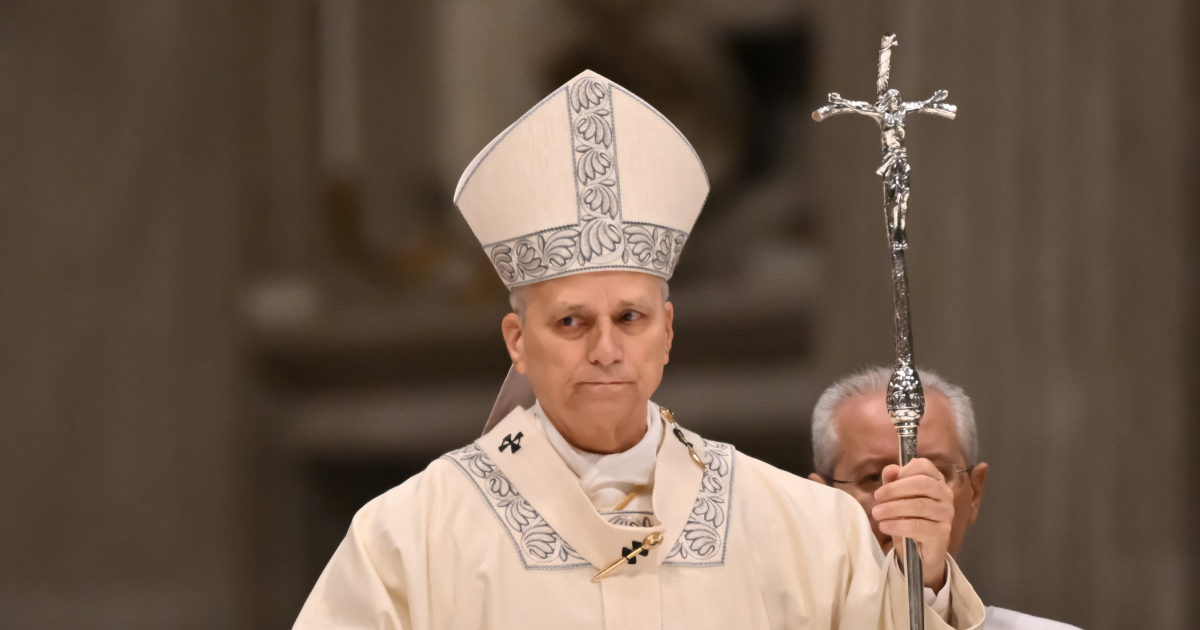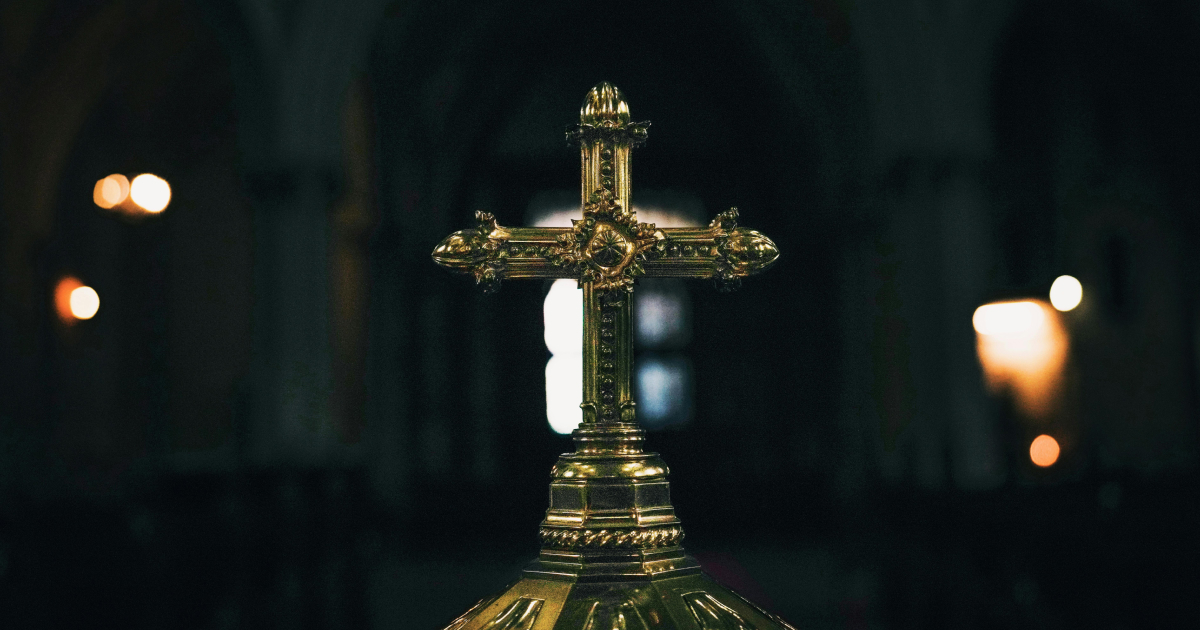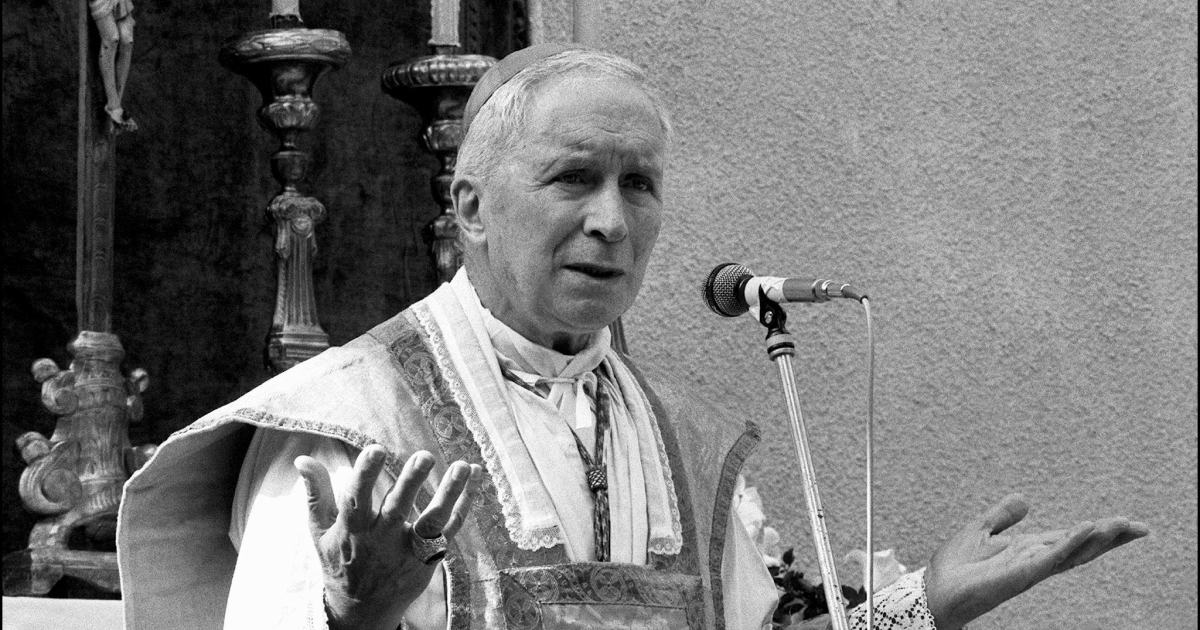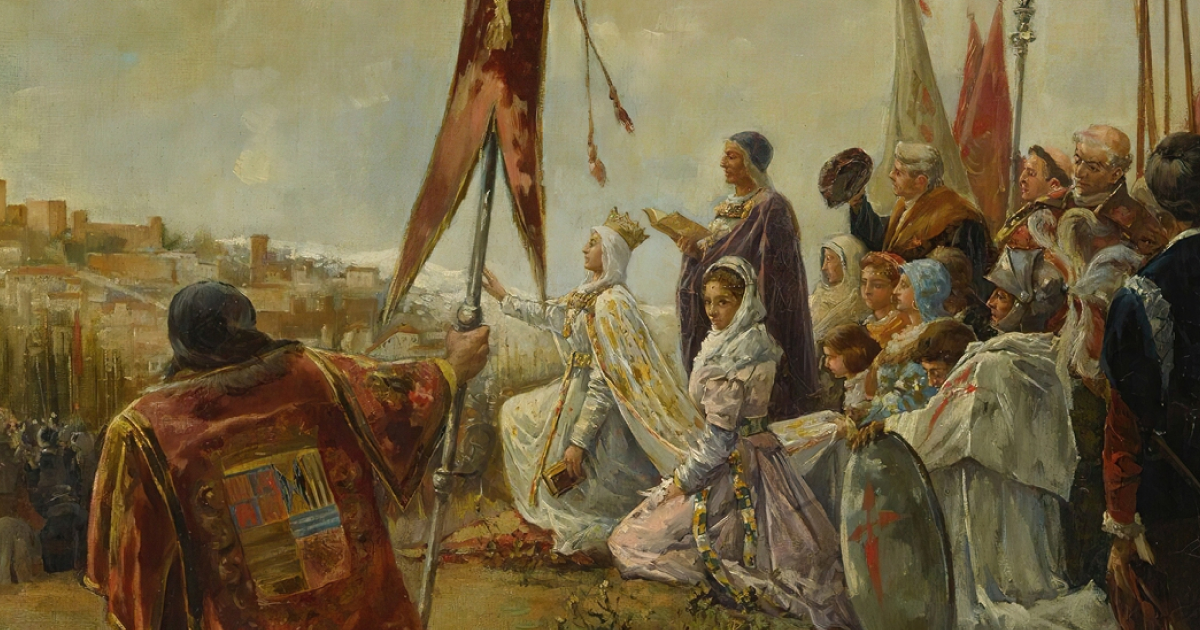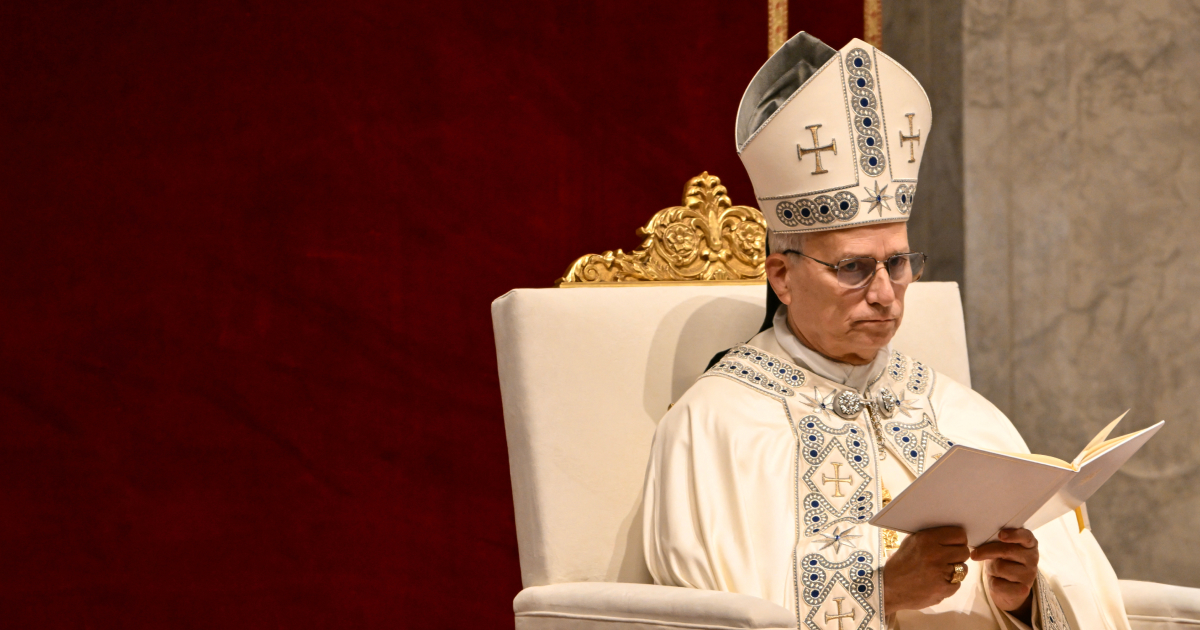Pope Leo has given an interview to Crux, and revealed his mind. But the exercise to read his mind needs a little code-breaking.
The news is good. It’s more than good. It’s excellent: the Pope is a Catholic.
Why should the Pope speak in code? Because the questions he has been put and answered are technical theological questions, each with political wings that could take off and fly around at high velocity if they were not anchored in carefully articulated thought to restrain them.
And as it happens, the Pope is doing just what some of us thought he would. He is using the language and preoccupations of the progressives, but rooting the language in the Magisterium, and emptying the rhetoric of heterodoxical velocity. As a result, it can’t take off like a revolutionary firework and wreak havoc.
Here follows a selection of the main issues the Pope addressed with his coded Catholicism:
Traditional Latin Mass
In a deliciously skilful way he set out to heal the damage done by Traditiones Custodes by reaching for that other great weapon of nuclear progressive revisionism: “synodality”.
“Between the Tridentine Mass and the Vatican II Mass, the Mass of Paul VI, I’m not sure where that’s going to go," the Pope said. "It’s obviously very complicated … That is an issue that I think also, maybe with synodality, we have to sit down and talk about.”
Synodality could mean so many things. Pope Francis allowed it to be used as a platform to justify changing the teaching of the Church. Pope Leo is going to use it to allow the Church to be reminded of the teaching and the need of the Church.
What will happen if “we sit down and talk about" the Latin Mass? The Church will articulate the position that was always true BF (Before Francis). The bishops whom Francis consulted will be able to tell the truth about what they really said. The evidence that the TLM is the antidote to the loss of enchantment will get a hearing. The few diehard Novus Ordo fanatics will be shown to be the tiny minority of late modernity pensioners, stuck in a kind of time-warp shaped by John Lennon and E.E. Cummings.
And, most importantly and skilfully, Leo will not have reversed his predecessor’s act of neurotic revenge, thereby avoiding doing the one thing that a pope must not do, which is to give the impression that doctrine can go one way with one pope and the other way with another pope, which does great damage to the see of St Peter; instead he will allow the Magisterium, discovered by talking about it – benign synodality – to make the corrective, as indeed it should.
Women
The Catholic Church has always taught that the ordination of women is an impossibility. So how does Pope Leo square this circle, when he is being presented with an unstopping tumult of feminist voices demanding power while pretending that all they want is humble service? How can he both affirm them and disarm them?
He does it beautifully.
First of all, he gives with one hand something that costs him nothing:
“I hope to continue in the footsteps of Francis, including in appointing women to some leadership roles at different levels in the Church’s life, recognising the gifts that women have that can contribute to the life of the Church in many ways.”
There is no reason why competent women professionals should not enrich the organisational and intellectual or theological life of the Church.
But, as everyone knows, ordination is the real goal for the heterodox. The odd chairwomanship of a committee is and never can be enough. So, Pope Leo promises he has no intention of changing the Church’s teaching (forget the “at the moment” – that is a small piece of therapeutic soothing for the feminists to help them get through each day).
He goes straight to the antidote for the feminist power grab and talks about his worry of clericalism. Because, as all those who speak political theology know, the antidote to feminist ambitions to capture the clerical state is to put grease under their feet by invoking the fear of clericalism – which everyone hates. And he does this with great elegance.
“The topic becomes a hot-button issue when the specific question is asked about ordination. What the synod had spoken about specifically was the ordination, perhaps, of women deacons, which has been a question that’s been studied for many years now.
"There’ve been different commissions appointed by different popes to say, what can we do about this? I think that will continue to be an issue. I at the moment don’t have an intention of changing the teaching of the Church on the topic. I think there are some previous questions that have to be asked.”
There are parts of the world that never really promoted the permanent deaconate, and that itself became a question: Why would we talk about ordaining women to the diaconate if the diaconate itself is not yet properly understood and properly developed and promoted within the Church?
The Pope added: “I also wonder, in terms of a comment I made at one of the press conferences I participated in in the synod, in terms of what has oftentimes been identified as clericalism in the present structures of the Church. Would we simply be wanting to invite women to become clericalised, and what has that really solved?”
The defusing of the feminist assault is achieved with the simple innocence of asking a prior question: “How do we avoid more clericalism?”
LGBTQ
And so to the other nuclear bomb. And once again, Pope Leo slices through the detonator wires with the deft skill of a bomb disposal expert.
He has thought carefully and strategically about this. What he does each time it to dismantle the secular platform that the heterodox question has had built for it.
Here, he turns to the strategy of St Paul in Ephesians 3. Christians don’t have adjective. There is no such thing as a “gay” Christian. Just a baptised Christian who hands their sexuality over to Christ to mend, heal and direct it.
How does he implement this in the conversation. First, the unattributed anecdote which firms up one’s own position.
“I recall something that a cardinal from the eastern part of the world said to me before I was Pope, about ‘the western world is fixated, obsessed with sexuality’. A person’s identity, for some people, is all about sexual identity, and for many people in other parts of the world, that’s not a primary issue in terms of how we should deal with one another.
“I confess, that’s on the back of my mind, because, as we’ve seen at the synod, any issue dealing with the LGBTQ question is highly polarising within the Church. For now, because of what I’ve already tried to demonstrate and live out in terms of my understanding of being Pope at this time in history, I’m trying not to continue to polarise or promote polarisation in the Church.”
Then he generously and humbly invokes Pope Francis while subtly turning what Francis said on its head.
“What I’m trying to say is what Francis said very clearly when he would say, ‘todos, todos, todos’. Everyone’s invited in.”
But whereas Pope Francis offered no caveat, no conditionality – hence his words were certainly heard to be the unconditional welcome of therapeutically driven relativism – Pope Leo slips in a little religious language which has the effect of reversing the meaning of what Pope Francis said.
“But I don’t invite a person in because they are or are not of any specific identity,” Pope Leo says. “I invite a person in because they are a son or daughter of God.”
You don’t come in defining yourself as a gay, bisexual or trans person and requiring everyone to accept you as you present yourself. You come in as a created person in need of redemption. If being the son or daughter of God means anything, it means the transformation of secular categorisations in the pursuit of holiness.
Nothing else could defuse the fakery of the LGBTQ assumptions that try to slip in erotic same-sex romanticism into the Christian lexicon and present one’s sexual appetite as a therapeutic pretence of homoerotic holiness. And just in case you could not follow the theology, he offers a political knock-out blow:
“I find it highly unlikely, certainly in the near future, that the Church’s doctrine in terms of what the Church teaches about sexuality, what the Church teaches about marriage, [will change].”
Fiducia Supplicans
And then in another puncturing of the progressive campaign, which is as elegant as it is swift, he once more reverses what Pope Francis intended by giving priority to the teaching of the Church instead of undermining it with ambiguity. He prioritises marriage and then goes on to consider gay blessings.
“In Northern Europe they are already publishing rituals of blessing ‘people who love one another’, is the way they express it, which goes specifically against the document that Pope Francis approved, Fiducia Supplicans, which basically says, of course we can bless all people, but it doesn’t look for a way of ritualising some kind of blessing because that’s not what the Church teaches."
When “what the Church teaches” is given the prior interpretative leverage it ought always to have had, the dragon of ambiguity is slain.
In response to troubled people demanding the gay or trans agenda, the Pope makes it clear they will be welcomed, but their demands will be met pastorally in Confession. It is they who will be changed if they are willing, not the Church.
“I think that the Church’s teaching will continue as it is, and that’s what I have to say about that for right now. I think it’s very important.”
Is there any ambiguity? If there was, it is eviscerated by Catholic theology:
“Families need to be supported, what they call the traditional family. The family is father, mother, and children.”
The Pope then addresses the additional progressive strategy much loved by the Germans that there would be a devolution of Catholic authority to regional or national synods. That’s not actually going to happen he infers. It only arose because of a translation problem.
“It asked the question, should episcopal conferences have a certain doctrinal authority? And that got translated in different ways during the synod, but even in the original document it’s not translated the same way from language to language. I pointed that out," the Pope says.
“Some of the English-speaking bishops became very upset, actually, thinking that the bishops in northern Europe could make a decision changing the doctrine of the Church on divorce and remarriage, or on homosexual relationships, or on polygamy. That’s another issue which the African bishops have brought forward, going back to issues that are not easily reconciled within the formal doctrine of the Church.”
And as we already know from the conversation that preceded this, Pope Leo insists on the priority of the formal teaching of the Church.
He ends with a plea to talk about the Latin Mass as a door to prayer and mystery, not as a political tool. Breaking the code, it was the progressives who made it political. The devotees of the Latin Mass wanted prayer and mystery.
The arguments, he surmises, were “not helpful for people who were looking for a deeper experience of prayer, of contact with the mystery of faith that they seemed to find in the celebration of the Tridentine Mass”.
Pope Leo does not need to reverse the work of his predecessor. He will let a synodality that invokes the Magisterium do that.
The whole conversation with Crux was conducted with every word being chosen in a way that was designed to defend Catholic teaching and implement it, effectively. But without causing offence.
He refused to take sides. He simply urged the Catholic faith on his listeners. Habemus Papam.
Photo: Pope Leo XIV presides over the Liturgy of the Word on the occasion of the beginning of the new pastoral year of the Diocese of Rome at Saint John Lateran archbasilica, Rome, Italy, 19 September 2025. (Photo by ANDREAS SOLARO/AFP via Getty Images.)





.jpg)


